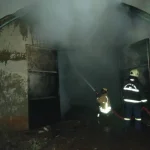Commuters will be paying more for transportation fares as price hikes hit 15 per cent beginning Saturday, 26 February 2022.
The decision was taken after the government held discussions with transport unions and operators.
A statement jointly signed by the General Secretary of the Ghana Private Road Transport Union (GPRTU), Mr Godfred Abulbire, and the General Secretary of the Ghana Road Transport Coordinating Council (GRTCC), Mr Emmanuel Ohene Yeboah, said the decision was based on the administrative arrangement on public transport fares and the plight of drivers, commuters and the public.
Driver unions had pushed for a 30% per cent increment, but the government and transport unions settled on half of the proposed increase.
The drivers have been pushing for fare increments for several months due to the rising cost of fuel cost and other products.
They also cited high import duty on vehicles and an increase in the cost of spare parts and vehicle lubricants as part of the numerous reasons.
In a related development, the Price Stabilisation and Recovery Levy (PRSL), suspended from November 2021 to the end of January 2022, has been reintroduced by the National Petroleum Authority (NPA).
Fuel prices have gone up by at least 50 pesewas per litre at the pumps since 01 February 2022. Petrol and diesel are currently being sold at an average GH₵ 7.8, inching closer to GH₵ 8.
The hike has been blamed on the rising cost of Brent crude on the international market, with some analysts projecting that fuel prices could hit GH₵8.0 per litre by March this year if the situation on the world market persisted.
What can be done to address the situation?
The Executive Secretary of the Chamber of Petroleum Consumers (COPEC), Duncan Amoah, told The Ghana Report, “We have a local refinery that we could have leveraged to get some fuel security at lower prices, but unfortunately, we don’t think there is a political will to refurbish the Tema Oil Refinery”.
Mr Amoah observed a fully functional refinery would cut the logistical cost, which adds to the price build-up by exporting crude to Europe to be refined before importing back to Ghana.
“They need to get TOR back on stream, and the need for political interference to be stopped holds the key for all for us,” he underscored.
Additionally, he cited the Bulk Oil Storage and Transportation Company Limited (BOST) failure in executing its mandate.
Mr Amoah explained that BOST is supposed to store huge volumes of fuel and release to the market to level prices and check shortages “without overstretching the already burdened Ghanaian taxpayer”.
However, “we do not see that function of BOST, and they are now focusing on trading…which was not the purpose of the BOST Act but to hold strategic stock”.
Below is the new fares:





















